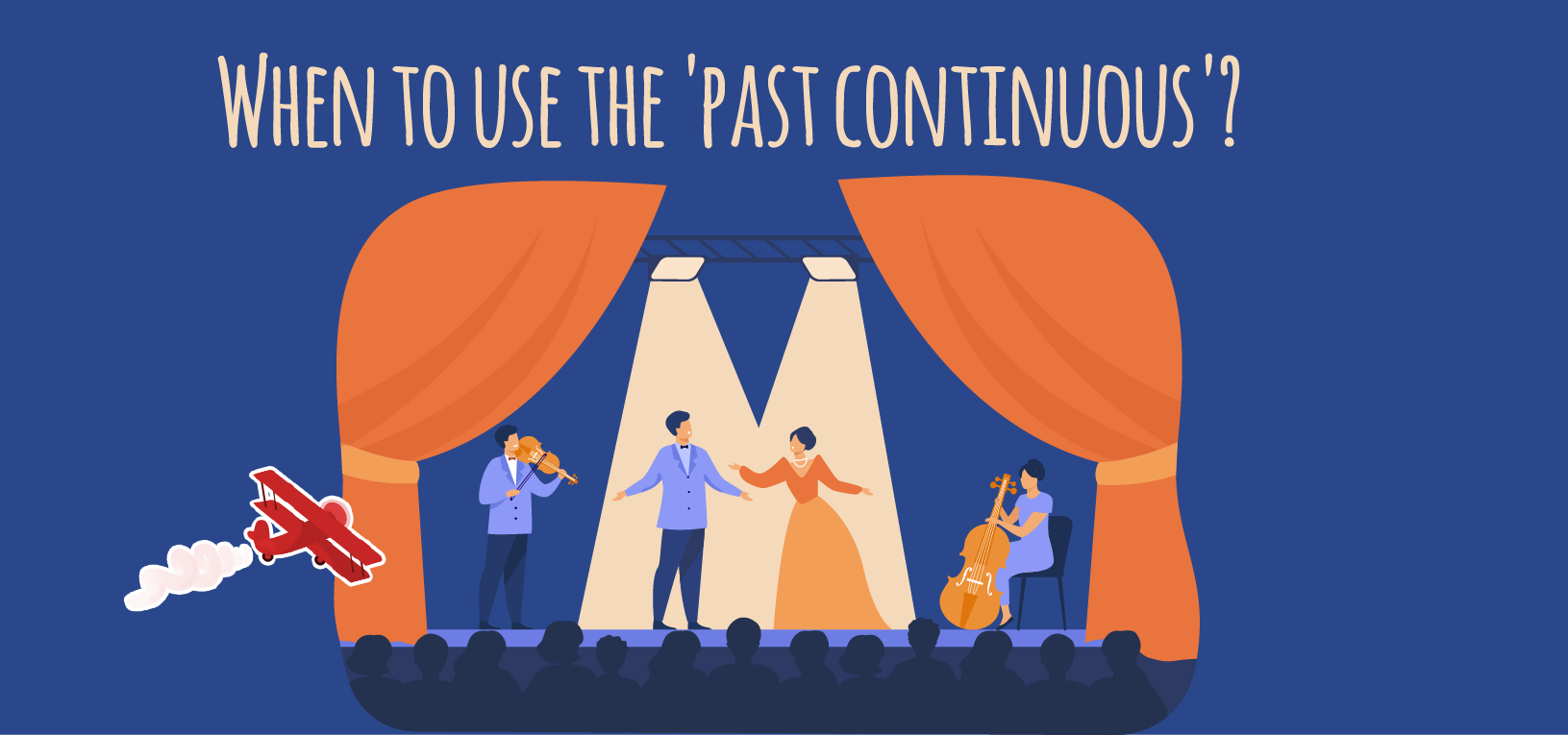When to use the ‘past continuous’?

When to use the ‘past continuous’?
Continuous past tense is used to describe actions that began in the past and that often continue for a short period of time after the action began. This time describes actions or events that occurred at a specific time in the past.
The Past continuous, or past progressive, is used in English for actions that are in progress or in progression at a certain time in the past. It is formed with the auxiliary verb be in the past and the gerund of the main verb.
Functions of the “past continuous”
The “past continuous” describes actions or events situated in a time prior to the present, whose beginning is situated in the past and which has not yet concluded at the moment of speaking. In other words, it expresses an incomplete or unfinished action from the past.
When it’s used:
The past continuous is used for an action unfolding in the past, when another action interrupts it . The interrupting action is in the past simple. “When” (cuando) and “while” (mientras) indicate the use of the past simple and continuous. In general, we use the past simple directly after “when” and the past continuous after “while”.
T lso can use the past continuous to talk about things that start before another action and continue after it .
- At 9 p.m. George was cooking dinner. Clare got home, took off her shoes, and then they ate
Similarly, you can use the Past Continuous when one process was taking place and another begins in the meantime. The first can continue or end at this time:
- “Sue was walking home when the accident happened.”
Examples
- They were waiting for the bus when the accident happened.
- Caroline was skiing when she broke her leg.
- When we arrived he was having a bath.
- When the fire started I was watching television.
How is the ‘Past Continuous’ formed?
The Past Continuous is conjugated with the past form of the auxiliary verb to be (ser o estar) and the present participle. This participle normally corresponds to the infinitive with ‘-ing’ added. For more details, compare the following conjugation rule:
Auxiliary verb ‘to be’ (was / were) + Present Participle (-ing form) of the corresponding verb
Affirmative
Subject + Auxiliary + Verb (present participle)
| I He / She / It | was |
sleeping |
When George arrived |
| You We You They | were |
Negative
Subject + Auxiliary + not + Verb (present participle)
| I He / She / It | was |
not |
sleeping |
When George arrived |
| You We You They | were |
The contracted forms were not used and are not used often rather than were not used and were not in informal oral and written language.
Interrogative
(Question word) + Auxiliary + Subject + Verb (present participle)
| where | was | I he / she / it |
sleeping |
when George arrived? |
| where | were | you we you they |
Some examples:
Model verbs: “to drive, to sing, to jump”
| Pronouns | Auxiliary verb “to be” | Present Participle (main verb) |
| I | Was | driving |
| He, She, it | was | singing |
| We, you, they | were | jumping |
It can also be used to describe something that was happening continuously in the past when it was interrupted by another action.
- The audience cheered until he fell off the stage.
- He was preparing dinner when he arrived.
Further…
The past continuous is also formed to shed light on what was happening at a precise moment in the past.
- At 6 o’clock, he was having dinner.
It can also refer to a habitual action in the past.
- She was constantly talking in class in those days.
A final warning: although the irregularities are few, not all verbs are suitable to describe a continuous action. Certain verbs cannot be used in the past continuous. A common example is the verb to arrive.
- He arrived at noon.
It can also be used to describe something that was happening continuously in the past when it was interrupted by another action.
- The audience was applauding until he fell off the stage
- I was making dinner when she arrived.
Additional points
Some verbs are not normally used with past continuous because they are not action verbs, for example: believe, belong, depend, hate, know, like, love, mean, need, prefer, realize, suppose, want, understand.
(believe, belong, depend, hate, know, like, love, mean, need, prefer, realize, suppose, want, understand).
- They knew each other very well – correct
- They were knowing each other very well – incorrect
Do not forget to review the calls for your official language exam, do not miss the opportunity to obtain your official degree!


